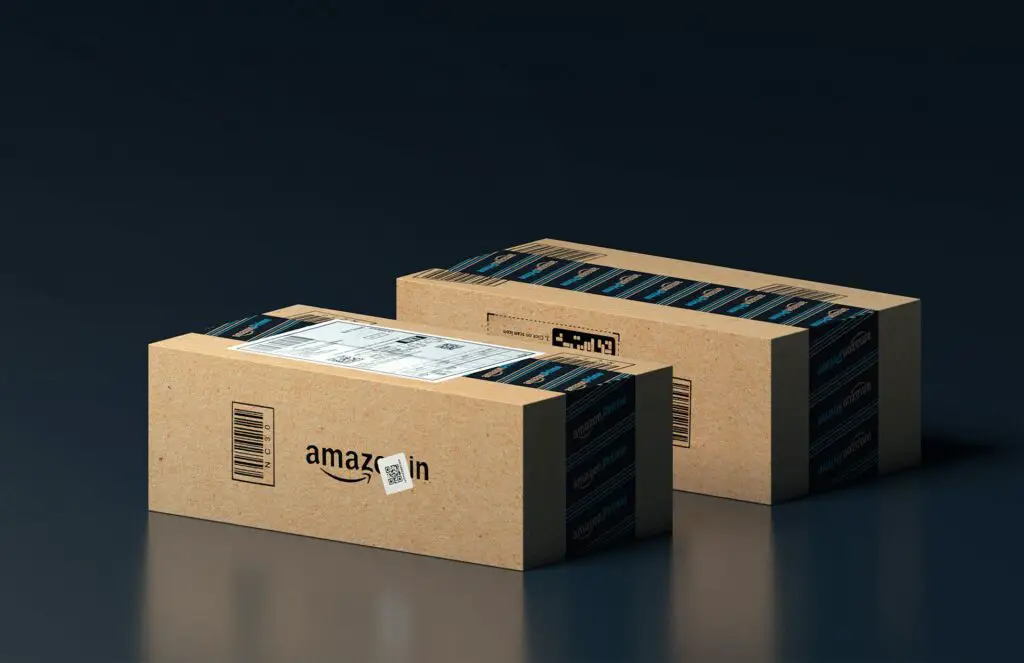Are you a seller on Amazon FBA? If so, you’re likely familiar with the convenience and benefits it offers for selling products. But have you considered the tax implications? Understanding and managing taxes is crucial for ensuring your FBA business stays compliant and optimized. In this guide, we’ll guide you through every aspect of managing Amazon FBA taxes, including compliance and optimization techniques.
What We Will Cover
Understanding Amazon FBA Taxes

When you join Amazon’s FBA program, you’re essentially outsourcing the warehousing and shipping aspects of your business to Amazon. While this offers many advantages, it also brings tax responsibilities. To effectively manage these taxes, one must first understand them.
Tax Obligations for Amazon FBA Sellers
As an FBA seller, you may be subject to additional tax requirements based on your region and business structure in addition to sales tax and income tax. It’s important to be informed because failing to comply with these duties may result in penalties and fines.
Sales Tax Considerations
Sales tax is a complex issue for FBA sellers since you may have nexus (a significant presence) in multiple states due to Amazon’s fulfillment centers. Since every state has different sales tax regulations, you must ascertain where you have nexus and abide by those laws.
Income Tax Basics
Income tax is another important consideration. Your FBA income is generally considered self-employment income and must be reported on your tax return. To reduce your tax bill, you must know how to properly report this income and take advantage of deductions.
Deductions and Expenses
One benefit of running an FBA business is the ability to deduct certain expenses, such as product costs, storage fees, and shipping expenses. Maintaining thorough documentation of these outlays all through the year can assist in reducing your taxable income.
Sales Tax Nexus
Determining your sales tax nexus is crucial for compliance. Nexus can be established through various activities, such as having inventory stored in a state or reaching a certain threshold of sales. To properly collect and remit sales tax, you must be aware of when and where you have nexus.
Inventory Valuation Methods
Properly valuing your inventory is important for both tax and financial purposes. Amazon offers two main inventory valuation methods: first-in-first-out (FIFO) and last-in-first-out (LIFO). Selecting the approach that works best for your company is crucial since each one has different effects on your tax liability.
International Tax Considerations
If you sell internationally through Amazon FBA, you’ll also need to consider the tax implications in those countries. To ensure compliance, it is crucial to conduct study or seek advice from a tax specialist as each country has its own unique set of tax laws and regulations.
Hiring Tax Professionals
Navigating FBA taxes can be overwhelming, especially as your business grows. Employing an experienced tax advisor with e-commerce expertise can maximize your tax-saving options and offer priceless advice and peace of mind by ensuring that you comply with all tax regulations.
Tax Planning and Optimization Strategies
Finally, proactive tax planning and optimization strategies can help you minimize your tax liability and keep more of your hard-earned profits. There are several ways to maximize your tax status, from strategically scheduling purchases and sales to organizing your company to take advantage of tax incentives.
Understanding Tax Withholding for Amazon FBA:
There are several ways to maximize your tax status, from strategically scheduling purchases and sales to organizing your company to take advantage of tax incentives.
Managing Quarterly Estimated Taxes:
In order to avoid fines and interest, many FBA sellers must submit estimated tax payments on a quarterly basis. This section offers instructions on how to properly calculate and handle these payments.
Avoiding Common Tax Mistakes for FBA Sellers:
Mistakes in tax filing can be costly. This section identifies typical mistakes that sellers on FBA should be aware of and offers advice on how to prevent them.
Keeping Accurate Records:
Best Practices: Accurate record-keeping is crucial for tax compliance and financial management. Best practices for keeping documents pertaining to your FBA business can be found here for readers.
Utilizing Tax Software and Tools:
Tax software and tools can streamline the tax preparation process for FBA sellers. This section looks at several tools and software choices that can be used to automate processes and guarantee accuracy.
Handling Tax Audits and Inquiries:
Facing a tax audit or inquiry can be stressful. This section provides advice on how to respond appropriately and professionally to such circumstances.
Exploring Tax Credits and Incentives:
FBA sellers may be eligible for various tax credits and incentives that can help reduce their tax burden. This section explores potential credits and incentives worth considering.
Considering Retirement and Investment Options:
Planning for retirement and exploring investment opportunities are important aspects of financial planning for FBA sellers. Investment methods and alternatives for retirement accounts are covered under this subject.
Staying Updated on Tax Law Changes:
Tax laws and regulations are subject to change, and staying informed about these changes is essential for FBA sellers. This section highlights the value of remaining current and offers resources to help with that.
The Future of Amazon FBA Taxes:
Trends and Forecasts: Lastly, this section discusses new developments in the field of Amazon FBA taxes as well as future directions for the development of tax legislation and regulations.
Final Thoughts About Amazon FBA
In conclusion, understanding and managing Amazon FBA taxes is essential for the success of your e-commerce business. You can confidently negotiate the complexity of FBA taxes and guarantee that your business is profitable and compliant by keeping yourself informed about your tax requirements, getting professional guidance when necessary, and putting proactive tax planning methods into practice.
Presenting UTN Wholesale: a dependable associate for cost-effective bulk agreements customized for Amazon vendors. Look through our collection for high profit margins, which includes popular products like Biotrue Products. With premium goods and unbeatable prices from UTN Wholesale, streamline your FBA experience.
FAQs
1. What is sales tax nexus, and why is it important for Amazon FBA sellers?
Sales tax nexus refers to the connection between a seller and a state that requires the seller to collect and remit sales tax on sales made in that state. For FBA sellers, understanding nexus is crucial because having inventory stored in a state can create nexus, triggering sales tax obligations.
2. How can I determine if I have sales tax nexus in a particular state?
You can determine your sales tax nexus by considering various factors, such as the location of Amazon fulfillment centers where your inventory is stored, your volume of sales in each state, and any other significant business activities you have in that state.
3. What expenses can I deduct as an Amazon FBA seller?
As an FBA seller, you can deduct various expenses related to your business, including product costs, storage fees, shipping expenses, advertising costs, and professional fees such as accounting or legal services.
4. Do I need to pay income tax on my Amazon FBA earnings?
Yes, you are required to report your FBA earnings as self-employment income on your tax return and pay income tax on those earnings. It’s essential to accurately report your income and take advantage of any deductions or credits available to minimize your tax liability.
5. How can I optimize my Amazon FBA taxes?
To optimize your FBA taxes, consider strategies such as structuring your business for maximum tax efficiency, keeping thorough records of expenses and deductions, staying informed about changes in tax laws, and seeking professional guidance from a qualified tax advisor.





It seems like you are an authority on this subject—as if you wrote the book on it or something. Though I think you could clarify your arguments a bit more with some photos, other than that, this is a fantastic site and I will certainly be back.